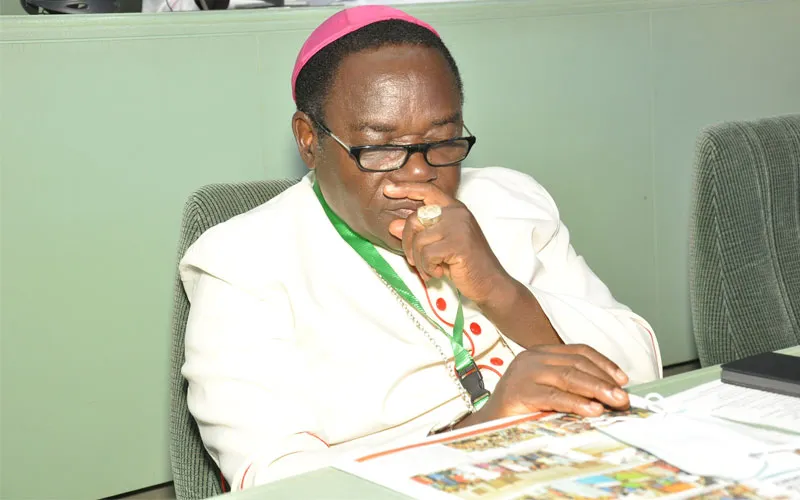He said, “While other parts of the world have seen fast recoveries, due to robust stimulus and vaccine support, Africa still features the lowest vaccination rates in the world, at 12 percent.”
The Nigerian Bishop said that the invasion of Ukraine by Russia raises more concerns to Africa countries, which are also experiencing slow recovery from COVID-19.
“Rising food, fuel and fertilizer prices will add to the more than 40 million people who fell into poverty, in a striking reversal of encouraging trends from the previous two decades,” Bishop Kukah said.
He explained in reference to the Ukraine situation, “The growing severity and frequency of climate shocks in the region will worsen food shortages and their impacts on the poorest.”
He added, “While Africa needs $1.3 trillion a year to achieve the Sustainable Development Goals, an amount that could rise to near $20 trillion a year due to population growth, its debts reached a staggering 70% of the economy in the first year of the pandemic.”
(Story continues below)
Bishop Kukah said that the African Ministers need to prove that their countries are committed to the African 2063 Agenda and the SDGs. He said that it is possible “if there is a strong and rapid mobilization of external resources led by the international community.”
Speaking on the Special Drawing Rights (SDRs), the Nigerian Catholic Bishop said that rich countries, which hold more than $400 billion need to transfer the funds to the countries that are in need of the money.
“Last year the IMF created $650 billion in emergency currency SDRs for coronavirus response and recovery aid. African countries received $33 billion of such an amount, and countries are spending them on vaccine access, poverty-reducing and stimulus measures,” he said, adding that the money is not enough.
Bishop Kukah said that there is need for African finance officials to call for more money and that they need to come up with more channels to effect the transfer of the money.
He added in reference to the finance officials, “They can help by providing assurance that they will set participatory and transparent strategies for applying SDRs to sustainable and climate goals.”
“It is important that SDR transfers do not create new debt, and come without harmful conditions such as austerity reforms that worsen human development or access to essential services,” Bishop Kukah said in his address to the African finance ministers at their ongoing annual conference in Senegal’s capital city, Dakar.
He added, “In particular, the African Development Bank, with its proven experience driving agricultural development, can harness the power of SDRs to stop a catastrophic food crisis in the region.”
Silas Mwale Isenjia is a Kenyan journalist with a great zeal and interest for Catholic Church related communication. He holds a Bachelor’s Degree in Linguistics, Media and Communication from Moi University in Kenya. Silas has vast experience in the Media production industry. He currently works as a Journalist for ACI Africa.








